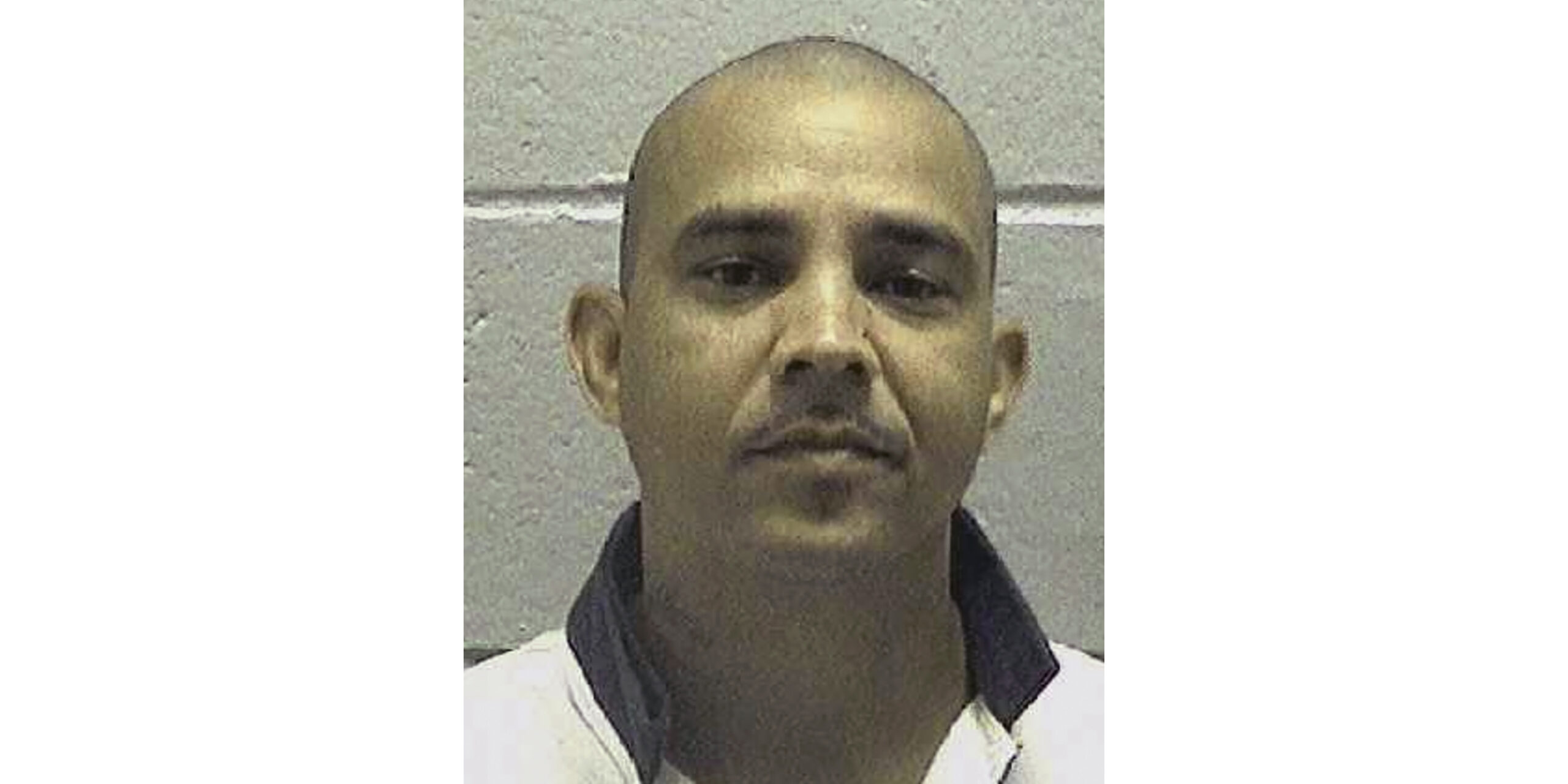Georgia is preparing to execute a man Thursday for a killing that happened more than two decades ago as his lawyers argue in the courts that he didn’t play an active role in the fatal shooting and shouldn’t be put to death.
Marion Wilson Jr., 42, is scheduled to receive a lethal injection of pentobarbital at 7 p.m. at the state prison in Jackson. He and Robert Earl Butts Jr. were convicted of murder and sentenced to death in the March 1996 killing of 24-year-old Donovan Corey Parks in Milledgeville, about 90 miles (145 kilometers) southeast of Atlanta.
Butts, who was 40, was executed in May 2018.
The State Board of Pardons and Paroles on Thursday denied Wilson’s request for clemency after holding a closed-door hearing Wednesday. The parole board is the only authority in Georgia that can commute a death sentence.
Wilson’s lawyers have also asked the courts to stop his execution.
A witness heard Butts ask Parks for a ride at a Walmart store where he had gone to buy cat food on March 28, 1996, prosecutors have said.
Butts was in the front passenger seat and Wilson was in the back as they left the parking lot. A short distance away, they ordered Parks out of the car, killed him and stole his car, prosecutors said.
Wilson’s lawyers argued in a court challenge filed in Butts County Superior Court that it was Butts who fired the fatal shotgun blast and that Wilson didn’t kill Parks or have any advance knowledge that Parks would be killed. The prosecutor also used false or misleading arguments to convince the jury to impose the death penalty for Wilson, they said.
Wilson’s death sentence is, therefore, unconstitutional, they argued in a court challenge.
Lawyers for the state argued in response that those claims have already been raised by Wilson’s lawyers and rejected by the courts in previous proceedings. With no new evidence or change in the law, they wrote, those arguments are procedurally barred.
Wilson’s lawyers say that while he suspected Butts planned to rob someone, he didn’t know Butts intended to harm or kill anyone and that he remained in the back seat of the car when Parks was killed.
During Wilson’s trial, Ocmulgee Judicial Circuit District Attorney Fred Bright told jurors it didn’t matter which man shot Parks, that they were both guilty of murder. But during the sentencing phase of the trial, Bright told jurors that Wilson “blew his brains out on the side of the road.”
During the sentencing phase of Butts’ trial a year later, Bright used similar language to indicate Butts was the killer.
Lawyers for Wilson say Bright later testified under oath that he believed Butts to be the shooter. To secure a death sentence that jurors might not otherwise have imposed, they wrote, Bright “was willing to cross ethical and constitutional lines” to falsely say Wilson was the shooter.
“The prosecutor’s deliberately misleading argument to the jury constitutes a rank violation of Mr. Wilson’s constitutional right to a fair and reliable sentencing proceeding,” they wrote.
Wilson’s sentence is “excessive and disproportionate to his culpability,” making it unconstitutional, his lawyers argued.
Lawyers for the state countered that Bright repeatedly said throughout the trial that is wasn’t clear which man fired the gun. They also said courts have previously found there was enough evidence that Wilson participated in the killing to warrant a death sentence.
In a separate court challenge, Wilson’s lawyers are seeking a new trial and DNA testing on the necktie worn by Parks. The tie had been pulled so tight around his neck that it had to be cut from his body.
The necktie was critically important to the prosecution’s arguments that Wilson actively participated in the killing and deserved the death penalty, his lawyers argued. DNA evidence could have resulted in an acquittal, or at least a lesser sentence, if it had been available at the time of trial, they argued.
State lawyers said that even if DNA testing was done and Butts’ DNA was found and Wilson’s wasn’t, it wouldn’t matter since Wilson was wearing gloves the night of the killing and there is other evidence establishing his guilt.
A Baldwin County Superior Court judge last month rejected the request for a new trial. Wilson’s lawyers have asked the state Supreme Court to halt his execution to hear an appeal.
Wilson would be the second prisoner executed by Georgia this year.









